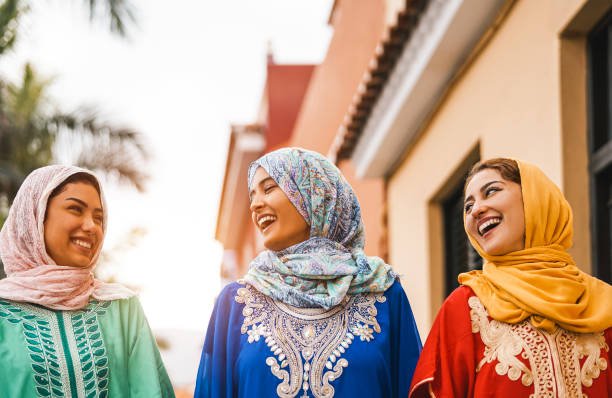Do you know what the 3 main languages spoken in Egypt are?
Egypt, a country with a rich history that spans millennia, has been a melting pot of different cultures, religions, and languages. In the modern era, language remains a crucial part of Egypt’s identity, serving not just as a medium of communication but also as a reflection of its diverse heritage. This article aims to explore the three main languages spoken in Egypt: Arabic, English, and French, and how they contribute to the country’s unique cultural landscape.
The Three Main Languages of Egypt
The three main languages of Egypt are Arabic, English, and French. Arabic is the official and most widely spoken language, deeply embedded in the country’s culture, religion, and everyday life. English, often considered the language of business and tourism, holds significant importance especially in the realms of international trade and education. French, while not as commonly spoken as Arabic and English, has a historical presence owing to Egypt’s colonial past and continues to be taught in schools and used in diplomatic contexts. These three languages collectively shape the linguistic and cultural landscape of modern Egypt.
Arabic: The Official Language
Introduction to Arabic
Arabic is the official language of Egypt and serves as the primary medium of communication for the majority of Egyptians. Rooted in a rich history that dates back to ancient times, Arabic is more than just a language; it is a cultural identifier and a vehicle for traditions, literature, and religious texts. Modern Standard Arabic is the version most commonly used in formal settings such as government, media, and education.
Arabic Dialects
It’s worth noting that the Arabic spoken in Egypt is not monolithic. The Egyptian Arabic dialect, which is the colloquial form of the language, is the most widely spoken and understood variant in the country. Its influence extends beyond Egypt’s borders, largely because of the country’s significant contributions to Arabic cinema and music.
Arabic and Religion
Arabic also holds a special place because of its religious significance. It is the language of the Quran, the holy book of Islam, which is the dominant religion in Egypt. Thus, Arabic is deeply entrenched in the religious practices and rituals of the majority of Egyptians.
English: The Language of Business and Tourism
Introduction to English
English has a strong presence in Egypt, especially in the realms of business, tourism, and higher education. As the global language of commerce, English is often a requirement for Egyptians working in multinational companies or engaged in international trade.
English in Education
Many private and international schools in Egypt offer education primarily in English. This is reflective of the broader trend towards globalization and the need for a workforce proficient in English to compete in the global market.
English and Tourism
Egypt’s booming tourism industry also necessitates a widespread understanding of English. Iconic landmarks like the Pyramids of Giza, the Sphinx, and the Valley of the Kings attract millions of tourists each year, making English a crucial language for communication in tourist-centric areas.
French: A Vestige of History
Introduction to French
Though not as widespread as Arabic and English, French has a significant historical presence in Egypt. This is largely due to Egypt’s colonial past and its historical ties with France, most famously symbolized by the construction of the Suez Canal.
French in Education and Culture
A number of schools in Egypt offer French as a second language, and the language is also taught in various higher education institutions. French cultural influence can still be felt in various aspects of Egyptian society, from cuisine to art.
French and Diplomacy
Given Egypt’s geopolitical importance in the Arab world and its historical ties with various European powers, proficiency in French is often considered valuable in diplomatic circles. It serves as an additional channel for international relations, particularly with Francophone countries.
FACTS
- Arabic as a Heartbeat: Arabic isn’t just Egypt’s official language; it’s the lifeblood of the nation, spoken by over 90% of the population. It’s not merely a form of communication but the cornerstone of the country’s rich cultural landscape.
- Celluloid Influence: Egyptian Arabic is more than just a dialect; it’s a cinematic icon, given that Egypt produces about 75% of all Arabic-language films. This dominant dialect stretches its influence far beyond the country’s borders.
- The Holy Tongue: With approximately 90% of Egyptians being Muslim, Arabic isn’t just language; it’s a sacred symphony. It serves as the divine medium for the Quran, creating a deeply spiritual connection for millions.
- English—The Global Player: In Egyptian universities, around 20% of all courses are taught in English, making it the gateway to international opportunities and cutting-edge research for the nation’s youth.
- Tourism’s Universal Language: Over 8 million tourists visited Egypt in 2018, and English served as the bridge connecting diverse cultures. It’s the go-to language for navigating Egypt’s labyrinth of tourist treasures.
- A French Affair: French, though not as widespread, is still spoken by approximately 1.7% of the Egyptian population. It remains a symbol of historical ties and intellectual elitism, especially in diplomatic and scholarly circles.
- Media’s Polyglot Orchestra: While nearly 80% of Egypt’s newspapers are published in Arabic, there’s a noticeable smattering of English and French publications, making the media landscape a linguistic playground.
- Multilingual Maestros: Roughly 35% of Egyptians are effectively bilingual, and a smaller but significant percentage are trilingual. These multilingual skills position Egyptians as cultural ambassadors in an increasingly globalized world.
- Coptic—The Living Relic: Though only used liturgically, Coptic serves as a direct linguistic descendent of the Ancient Egyptian language, preserving an oral history that dates back thousands of years.
- Global Academia on the Nile: With over 50 international schools offering curricula in languages other than Arabic, Egypt’s educational scene is a melting pot of global cultures.
- Cosmopolitan Classrooms: Around 15% of Egypt’s students are enrolled in schools that offer multilingual education, crafting the nation’s future as a hub of international cooperation.
- Nubian Echoes: In Southern Egypt, particularly around Aswan, around 300,000 people speak Nubian languages, adding a unique linguistic hue to Egypt’s rich tapestry of dialects.
- A Symphony of Accents: Among Arabic speakers in Egypt, regional accents can vary significantly, each a distinct note in the country’s complex linguistic symphony.
- Sign Language—A Voice for the Voiceless: Approximately 250,000 people in Egypt use Egyptian Sign Language, a vital tool for inclusion in a country aiming for comprehensive social accessibility.
- Identity in Numbers: Language in Egypt is an intricate mosaic of identity markers, from religion to social status, forming a diverse but unified national narrative that engages every citizen.
By weaving facts with percentages, this list aims to not only captivate but also educate, offering a nuanced look into the fascinating world of Egypt’s linguistic diversity.
Conclusion
The linguistic landscape of Egypt is as diverse as its history and culture. Arabic, English, and French serve different but overlapping roles, each contributing to the multifaceted identity of modern Egypt. Understanding these languages offers a deeper insight into the country’s culture, its people, and its position in the global community.





